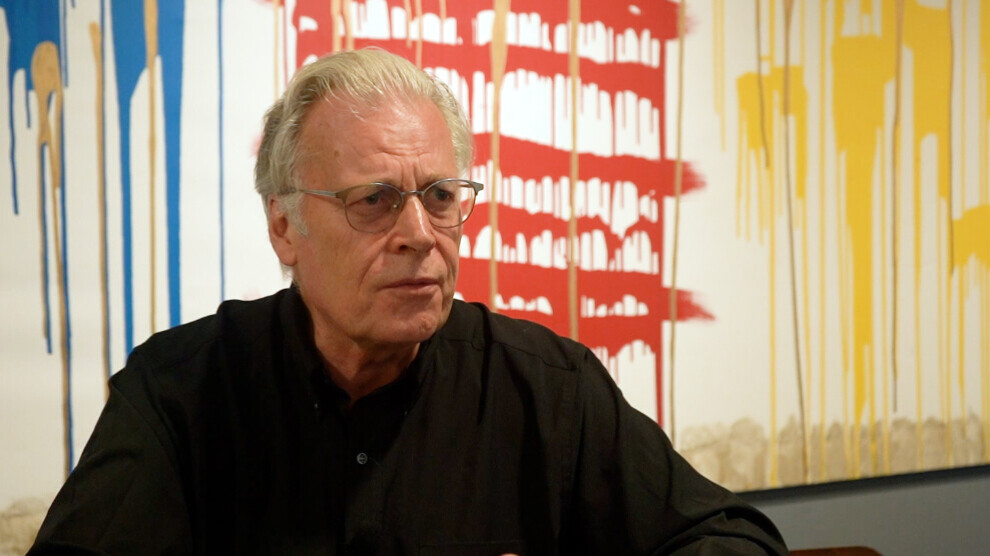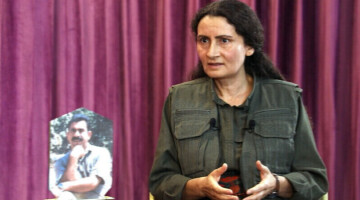The isolation of Kurdish People's Leader Abdullah Öcalan has been in effect since 15 February 1999. The Kurdish People's Leader has been kept in isolation since 1999, when he was taken into captivity by an international conspiracy. Requests by his lawyers and family for a meeting with him are either arbitrarily rejected, or remain unanswered, or months later an unlawful and arbitrary justification is given that disciplinary penalties have been imposed. The reasons for the disciplinary penalties are not reported.
The last 6-month ban on lawyer visits to Kurdish People's Leader Abdullah Öcalan and other prisoners in İmralı was issued by the Bursa Execution Judgeship on 3 May 2024. With this ban, Abdullah Öcalan has been banned from seeing his lawyers for 6 months at least 13 times in the last 8 years. The İmralı practice of absolute non-communication has become a legal black hole.
ANF spoke with Ögmundur Jónasson, former Icelandic Minister of Interior and Justice, who was a member of the international delegation to İmralı and who spoke at the Berlin Peace and Democracy Conference about the isolation in İmralı.
To start with, the isolation of Kurdish People's Leader Abdullah Öcalan is still ongoing. What would you like to say about this?
Abdullah Öcalan has been in isolation on İmralı Island since 1999. That is a quarter of a century and this is very serious, however you look at it. From the point of the individual, he is being subjected to torture. Although I am no expert in torture or prisons, you only have to read any relevant conventions on human rights to know that this is in breach of them. From that point of view, it is very serious. It is torture which is directed towards an individual. But it is much more. It is directed against the Kurdish people in general. It is an attempt to isolate the Kurds.
Everybody recognizes Abdullah Öcalan as the leader of the Kurdish Freedom Movement; a movement fighting for cultural rights, political rights, democratic rights, human rights. The message from Ankara by isolating Abdullah Öcalan is a message to all Kurds who are in any way associated with the struggle for human rights for the Kurds. The message is this; isolation risks happening to you all. This is why it is legitimate to talk about the İmralı regime and it is the İmralı regime that must be broken. And here, we need a concerted effort by the Kurds and the international community.
You mentioned Turkey's attitude towards isolation. How do you interpret the approach of international organisations, for example the CPT?
What they have to say about this is somewhat positive. We look at the CPT report from 2019 which says that İmralı isolation regime must be relieved without any delay but then, nothing happens. I have been on the so-called İmralı Delegation and what I have learned from this is the following: Turkey, NATO or their allies don’t want unconditional peace. They want conditional peace, and their condition is subservience by the Kurds. ‘We dictate, you obey.’ This is the problem.
The last İmralı Delegation I was on was in May last year, and we made a press conference after the travel to Turkey. It was coinciding with the Reykjavik Summit of the Council of Ministers. In following that, one of our members, Laura Castell, was on the mission. She wrote to the Parliamentary Assembly, which, in turn, turned to the Council of Ministers, asking what they were going to do and how they evaluated the isolation of Abdullah Öcalan. And the answer was ‘We can’t give you an answer.’ My conclusion is this; you cannot expect anything from the Turkish authorities. You cannot expect anything from the Council of Europe. You cannot expect anything from NATO unless we make them do it.
You mentioned the attitude of NATO and the Council of Europe. Obviously, they do not act in accordance with their founding principles and objectives. What can be done in this situation?
I am referring to the international community, because if you look at the world, how it has become, human society has become very global and the struggle is global. You are connecting with struggles throughout the world, people from the Philippines, from Bolivia, from Palestine, from Ireland, from Iceland, all around. And this is what must be done. We must create an international network, doing the same as our opponents are doing. The imperialist forces are doing the same, they are co-operating. We must do the same. We must appeal to the people. When we look at history, we have had success. Such movements have had success.
In my lecture from my talk, I referred to the peace movement of the 1980s in Germany, when NATO and the US in particular wanted to install short-range and medium-range missiles in Germany directed against the Soviet Bloc. There were demonstrations; first small, then larger. In 1981, there were 250,000 people gathered in Bonn and, in the end, we had victory. This movement won. We had the INF Treaty in 1987, which has been recalled now by the US. But that was a victory. In 2003, when Iraq was being invaded, in Berlin, half a million people gathered in the streets. The result? The German government, at that point, could not support the invasion of Iraq. So, I am taking these as examples of the way public opinion and the public at large, if they mobilize, take to the streets, they can have an effect. This is what I am hoping in the case of Abdullah Öcalan. Because the world now is facing very grave dangers in wars wherever you look at the world: Ukraine, Palestine, Turkey, Bashur (South Kurdistan), Bakur (North Kurdistan), Rojava (West Kurdistan). There are wars going on everywhere. And in Gaza, of course.
My argument is this; if you release Abdullah Öcalan and lift the isolation of Abdullah Öcalan, you do the same thing as you did in 2013-2015, start a peace negotiating process. It will, I believe it can, have an effect not only in Turkey, not only in Kurdistan, not only Kurdish areas, but throughout the Middle East and this will spread throughout the world.
This is the domino theory reversed. They talked about the domino theory in Vietnam, in South-East Asia. We will have our domino theory. We start peace in Kurdistan, and it will spread throughout the Middle East and the World. This is what the world needs. So, I am saying that it is not only the Kurds who need the release of Abdullah Öcalan from isolation. We all do.















